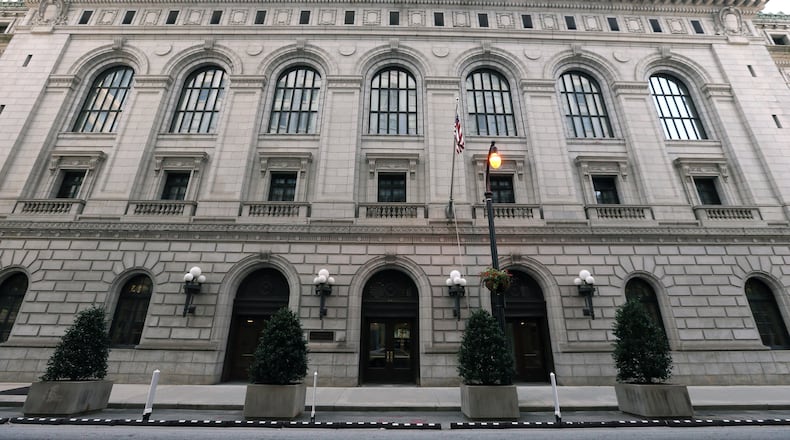The federal appeals court in Atlanta has overturned convictions against four state prison guards ensnared in one of the biggest corruption scandals to hit the Georgia prison system.
The four guards were charged in 2016 at the culmination of a massive undercover investigation that led to guilty pleas by 44 other ex-correctional officers.
Guards Chelsey Mayweather, Jeremy Fluellen, Christopher Williams and Tramaine Tucker fought their charges. But they were convicted at trial of extortion and attempted distribution of cocaine and methamphetamine.
On Thursday, the 11th U.S. Circuit Court of Appeals overturned drug convictions against Fluellen and Williams and the extortion convictions against all four defendants.
The undercover investigation focused on guards suspected of smuggling contraband into prisons. The FBI used an informant to set up fake drug deals with those guards outside prison walls. The informant told the guards to wear their uniforms to prevent police from pulling them over.
During the sting operation, no real drugs were transported, although the guards were given up to $1,500 for their work.
Because the informant reached out to the guards, their lawyers asked U.S. District Judge Timothy Batten to allow an entrapment defense. But the judge refused.
If one had been allowed, it may made a difference, evidenced by a note a juror sent the judge during deliberations.
“I really don’t agree with how this operation was done,” the note said. “As a juror I understand I have the right to vote ‘not guilty’ based solely on that belief.”
Over defense objections, Batten then told jurors that the government’s conduct “is not an issue for your consideration because entrapment is not a defense in this case.”
The jury later convicted the ex-guards.
Because the 11th Circuit said Batten should have allowed an entrapment defense, it reversed the attempted drug distribution convictions against Fluellen and Williams because it applied only to them.
The extortion convictions hinged on the fact the guards wore their uniforms during the phony drug transactions.
But the guards’ official powers are limited to the bounds of the prisons except when transporting inmates or when assisting law enforcement, Judge Elizabeth Branch wrote for the court. Simply wearing a uniform for some other reason doesn’t qualify as an “official act,” she said.
Williams’ lawyer, federal defender Natasha Silas, said she was pleased with the ruling. “A jury’s right to decide these types of issues for their fellow citizens is protected by the Constitution and is very important,” she said.
Williams, a former guard at Hancock State Prison, has served 43 months of his 96-month sentence.
Fluellen, who also worked at Hancock, served three years of his 75-month sentence before being released due to pandemic concerns, his lawyer, Dennis O’Brien, said. Fluellen has since been in home confinement wearing an ankle monitor.
“We’re elated with the ruling,” O’Brien said. “Unfortunately, we can’t get those three years back for him.”
The U.S. Attorney’s Office is reviewing the decision so that it can decide the most appropriate course of action going forward, a spokesman said.
Mayweather, a former Baldwin State Prison guard, and Tucker, who worked at Hancock, were released from prison last year, records show.
About the Author
The Latest
Featured




